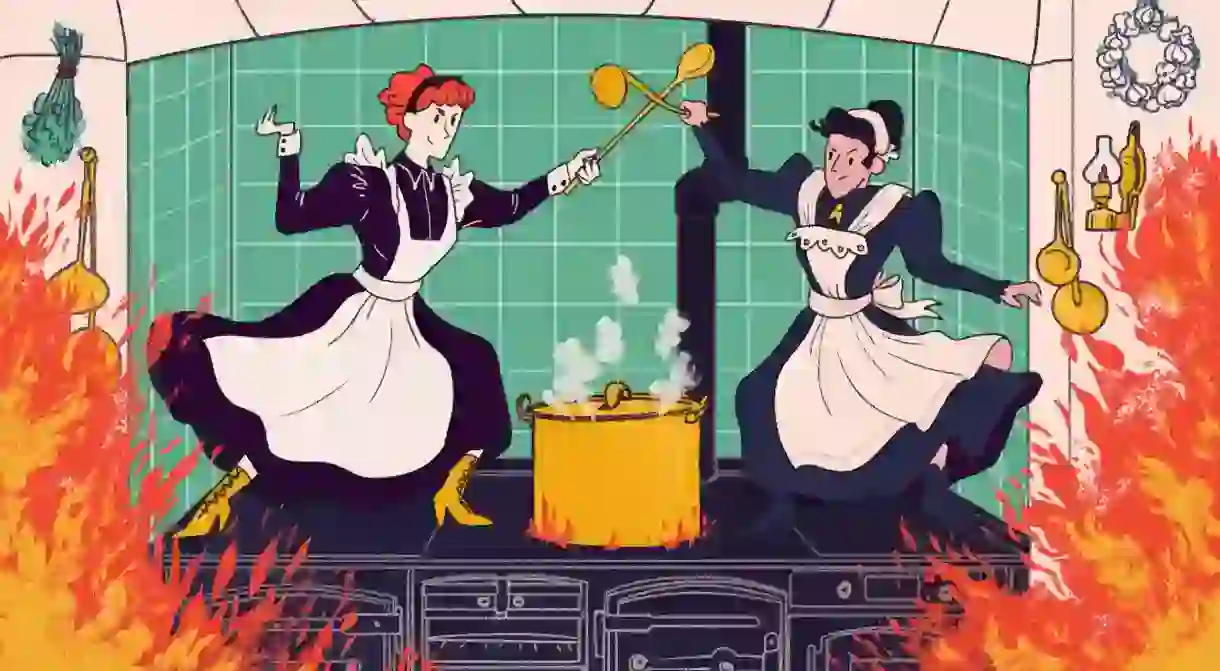A Guide to English Proverbs and What They Mean

English is the most widely spoken language in the world. With a cultural history of William Shakespeare, the recognised standard of Queen’s English and the famous use of the humble proverb in everyday life, the British are a nation of self-proclaimed linguists. Not that we like to brag. We’re far too British for that.
If you ask any Brit, they’ll tell you honestly how we all sit around reciting Shakespeare in the Queen’s English while talking about the weather with proverbs and puns. Or something like that. But there’s nothing we love more than a good old-fashioned English saying. Not a day goes by without us casually dropping at least one into conversation, and no other Englishman will ever ask why we’re talking about watching pots boil or the lining of clouds (stay with us, this will make sense).
You’re taught them from a young age, and you’ll use them endlessly all your life. You’ll even explain proverbs with further proverbs. They ignite the Blitz spirit, spur us to success and remind us to be quietly accepting in typical English fashion. Brit Kim Gregory talks us through her favourite English proverbs and their meanings.
‘Beauty is in the eye of the beholder’
A fond reminder to anyone needing a dose of self-confidence, this proverb means that beauty is no single aesthetic. It’s subjective, viewed differently by everyone. If one person doesn’t like the way something looks, another will. We’re all unique and to be appreciated individually. This proverb is attributed to Irish novelist Margaret Hungerford. In the late 1800s, she wrote under the pen name The Duchess, and the saying comes from her book Molly Bawn.

‘Laughter is the best medicine’
Nothing heals better than joy, whether you’re nursing a broken heart or a crippling cold caused by this ghastly British weather. When times are tough, we go to our loved ones for a hearty chuckle. There’s nothing better than a dose of English wit.
‘Too many cooks spoil the broth’
This one might conjure up visions of a Victorian scullery maid shouting at her lessers to “Get off my bloody soup, Jane!” And to be honest, you might be right, as the origins of the saying are unknown. These days, this old-fashioned quip explains that if too many people are involved in one thing, it can get messy. Sometimes, it’s best to go it alone.
‘All good things must come to an end’
The famous English poet Geoffrey Chaucer wrote this in his 1374 masterpiece, Troilus and Criseyde. It’s a beautiful reflection on the inevitable closing of chapters, sometimes even on death. Mostly, we now say it when we have a serious case of holiday blues. Sorry, Chaucer.
‘Every cloud has a silver lining’
If I had a penny for every time my very English mother has said, “Every cloud!” in response to a problem, I would be able to buy all the fish and chips in the UK. It originates from a poem by John Milton and reminds us to stay positive – that even in the darkest times, there’ll be something good in the outcome – the “silver lining”. Think losing a tenner, but enjoying the lightness of your purse. It’s the modern-day “carry on” of the Blitz spirit, the keep-your-chin-up attitude we’re famous for.
‘Smile and the world smiles with you’
The original saying went on to add the rather more miserable: “Cry and you cry alone.” Thankfully, Brits have dropped the end of the adage and use the simplified version to remind one another that happiness breeds happiness. Smile today and you’ll bring someone else joy.
‘A bird in the hand is worth two in the bush’
Baffled? We don’t blame you. This one may not sound beautiful but its sentiment is. Jake Capgrave wrote it in his 1450 book, The Life Of Saint Katherine. It means that it is better to accept what you have than try to get more and risk losing everything. Practise gratitude for what you do have, rather than becoming obsessed with obtaining more.

‘Love will find a way’
Got a problem of the heart? Listen to Thomas Deloney who wrote in his 1648 romance novel, Gentle Craft: “Thus love you see can find a way to make both men and maids obey.” The line has been adapted into the shorter phrase we Brits use today to say that where there’s love, you can always make things work, whether that’s an unusual partnering or a long-distance relationship.
‘Where ignorance is bliss, ’tis folly to be wise’
Nowadays, we’ve clipped this saying to simply “Ignorance is bliss.” The original comes from a 1742 poem by Thomas Gray. It may sound negative, but often, in context, we use it to remind one another that knowing everything isn’t the secret to happiness. Sometimes, things are better left unsaid.













